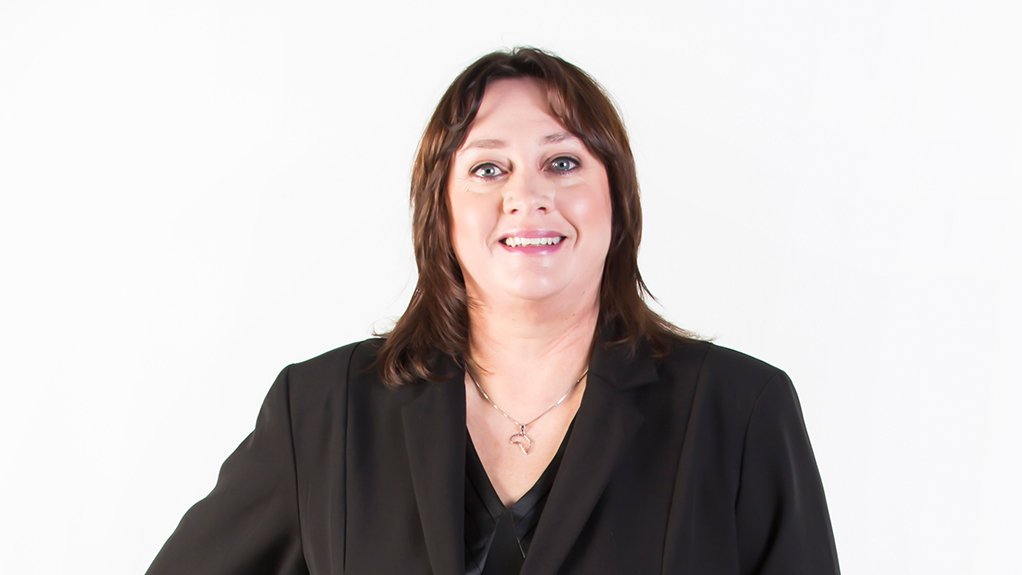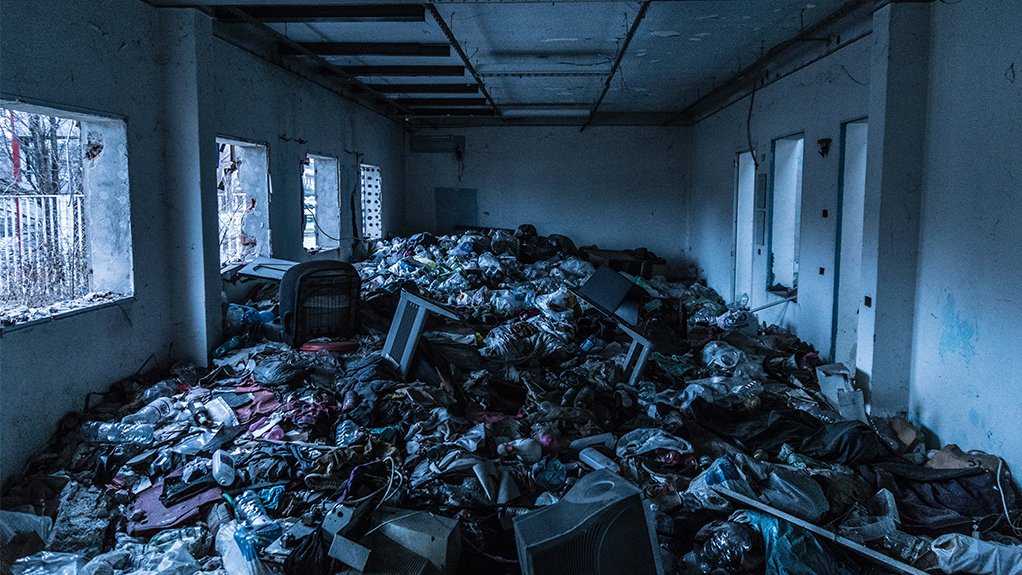Lax regulation poses threat to S Africa’s e-waste initiatives



PATRICIA SCHRÖDER Individuals should take responsibility for their small electronic devices and embrace sustainable disposal practices
DIRTY BUSINESS Unethical industry practices threaten to replace genuine waste management efforts with a facade of a circular economy that is neither effective nor sustainable
The producer responsibility organisation Circular Energy is taking a strong stance concerning the rise in illegal electronic-waste (e-waste) dumping and calls on government, industries and consumers to collaborate to eradicate e-waste dumping.
E-waste comprises mostly of electrical and electronic appliances, power tools, digital devices, lighting, reusable and disposable batteries, and storage devices; South Africa produces around 360 000 t of e-waste every year, with Gauteng accounting for 55% of that volume, according to the Gauteng government’s website.
Circular Energy spokesperson Patricia Schröder notes that the lack of proper regulation and enforcement around e-waste collection and recycling practices in South Africa poses a significant threat to the country’s e-waste reduction initiatives, particularly because the current situation benefits “fake” e-waste vendors.
“Legitimate efforts to contain a runaway e-waste problem are being undermined by unscrupulous actors who engage in processing e-waste that is hazardous to humans and the environment for profit’s sake,” Schröder says.
She points out that fake e-waste service providers and/or informal workers may resort to brute-force salvaging instead of correctly disposing of or recycling products. She stresses that this approach does not resolve the issue of illegal disposal of e-waste.
“Unfortunately, they are more interested in extracting valuable components for resale or maximising profits through second-rate recycling than health, safety and protecting the environment,” highlights Schröder.
Unhindered by strict controls, vendors may resort to openly burning waste or the quick dismantling of appliances, resulting in unwanted materials discarded recklessly and often resulting in the release of harmful toxins, such as lead, mercury and cadmium into the air, soil and water supplies.
The Department of Forestry, Fisheries and the Environment is in the process of developing a national e-waste policy. A draft policy has been published and is currently out for comment. It falls under the National Environmental Management: Waste Act, and is called the National Policy: Management of Waste Electrical and Electronic Equipment (WEEE). After the waste industry’s review and inputs have been submitted, the draft WEEE Policy document will be finalised, says Schröder.
Standardised Industry Practices
The dearth of stringent regulations makes it critical that government and industry stakeholders collaborate on legislation and standards that establish ethical industry practices, formal operational controls and strict skills requirements.
However, regulations alone will not be enough, with Schröder acknowledging that informal and unregulated vendors gain an unfair competitive advantage over legitimate operators because technically- sound collection and recycling is inherently slower and pricier, and formal companies are obliged to implement accepted safety standards and controls. This not only impacts on companies financially, but it also threatens to “replace authentic efforts with a facade of a circular economy that is neither effective nor sustainable”, Schröder explains. She therefore suggests several immediate solutions to rein in improper practices among unregulated and informal operators. “Firstly, formal e-waste management companies need to collaborate to find ways to educate the public on responsible e-waste disposal and recycling, as well as what to look for in a qualified service provider,” she says. Secondly, government intervention is needed to ensure the development of adequate legislation that compels all service providers to play on a level field, with all vendors obliged to apply and conform to the same standards and practices. Additionally, formal e-waste service offerings should become more convenient and user-friendly. Proper Disposal of E-Waste Schröder says illegal e-waste dumping has far-reaching implications such as negative effects on the environment and human health as it is likely to contain materials that are potentially explosive, and poisonous or hazardous to humans and animals, and will contaminate surrounding areas as they erode. “Government and businesses can work together to close regulatory gaps and impose severe fines on those responsible for illicit e-waste dumping to send a clear message that these actions will not be tolerated,” Schröder stresses. She says disposing of electrical and electronic products responsibly can also create a shift towards responsible recycling and discourage illegal dumping. Meanwhile, Circular Energy has partnered with Woolworths to establish convenient drop-off points for small portable batteries and household lamps across the country to facilitate responsible disposal. Schröder elaborates: “We advocate for extended producer responsibility (EPR), urging manufacturers to take accountability for the entire life cycle of their products by promoting responsible manufacturing, usage and disposal.” She also condemns activities such as smashing appliances for recreational purposes at “smashing centres” calling it an “unhealthy and unsafe practice” and something illegal in accordance with the National Environmental Management Waste Act. She also warns that perpetrators could be fined as e-waste requires specialised handling, recycling and treatment by suitably qualified persons within safely isolated environments. With EPR schemes becoming entrenched in the South African industry and retail, consumer education and involvement will be key to controlling e-waste, notes Schröder. She emphasises that it is imperative that a two-way supply chain is established to ensure that the disposal of e-waste is “as natural, intuitive and easy as buying an appliance in the first place”. Schröder urges individuals to take responsibility for their small electronic devices and embrace sustainable disposal practices adding that responsible e-waste management is not only government and industry’s responsibility. “Each one of us has a crucial role to play to take stock of our homes by rummaging through our drawers and digging deep into our garage boxes to uncover the hidden e-waste. Once identified, these items should be recycled through proper channels, ensuring their materials are recovered and reused,” she concludes.
Article Enquiry
Email Article
Save Article
Feedback
To advertise email advertising@creamermedia.co.za or click here
Announcements
What's On
Subscribe to improve your user experience...
Option 1 (equivalent of R125 a month):
Receive a weekly copy of Creamer Media's Engineering News & Mining Weekly magazine
(print copy for those in South Africa and e-magazine for those outside of South Africa)
Receive daily email newsletters
Access to full search results
Access archive of magazine back copies
Access to Projects in Progress
Access to ONE Research Report of your choice in PDF format
Option 2 (equivalent of R375 a month):
All benefits from Option 1
PLUS
Access to Creamer Media's Research Channel Africa for ALL Research Reports, in PDF format, on various industrial and mining sectors
including Electricity; Water; Energy Transition; Hydrogen; Roads, Rail and Ports; Coal; Gold; Platinum; Battery Metals; etc.
Already a subscriber?
Forgotten your password?
Receive weekly copy of Creamer Media's Engineering News & Mining Weekly magazine (print copy for those in South Africa and e-magazine for those outside of South Africa)
➕
Recieve daily email newsletters
➕
Access to full search results
➕
Access archive of magazine back copies
➕
Access to Projects in Progress
➕
Access to ONE Research Report of your choice in PDF format
RESEARCH CHANNEL AFRICA
R4500 (equivalent of R375 a month)
SUBSCRIBEAll benefits from Option 1
➕
Access to Creamer Media's Research Channel Africa for ALL Research Reports on various industrial and mining sectors, in PDF format, including on:
Electricity
➕
Water
➕
Energy Transition
➕
Hydrogen
➕
Roads, Rail and Ports
➕
Coal
➕
Gold
➕
Platinum
➕
Battery Metals
➕
etc.
Receive all benefits from Option 1 or Option 2 delivered to numerous people at your company
➕
Multiple User names and Passwords for simultaneous log-ins
➕
Intranet integration access to all in your organisation



















